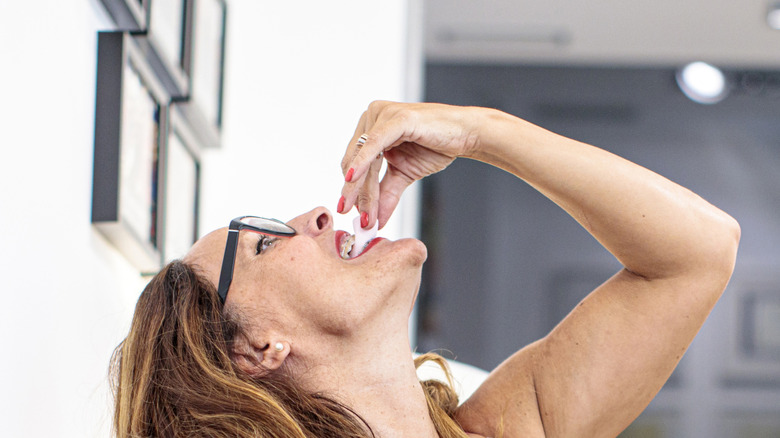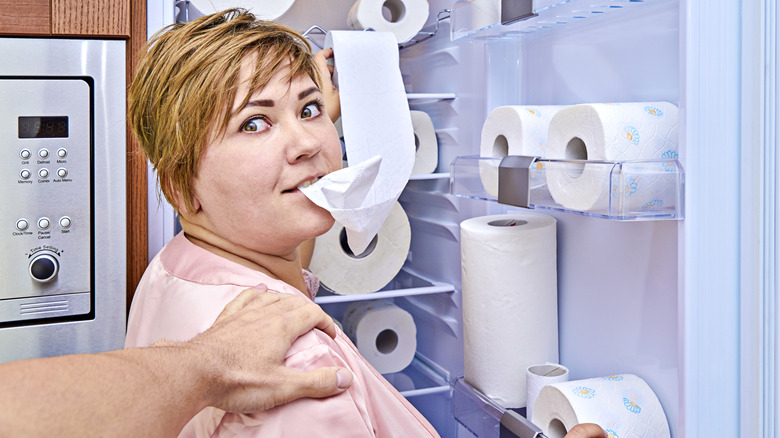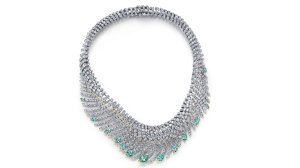
Lourdes Balduque/Getty Images
Everyone has food cravings occasionally. But should you be concerned if you’re always craving the same item? Maybe, especially if you carry any of the risk factors for colon cancer. Often referred to under the broader colorectal cancer term, colon cancer is one of the most prevalent cancers in the United States. According to the American Cancer Society, more than 107,000 men and women are diagnosed annually with the disease. Currently, it’s the third leading cause of cancer fatalities.
How do you know if you’re more likely than someone else to be diagnosed with colon cancer? A few of the most prominent genetic, lifestyle, and medical markers include a family history of colon or colorectal cancer, a gastrointestinal condition like Crohn’s disease, a sedentary lifestyle, use of tobacco, overuse of alcohol, a high-fat diet filled with processed foods, and advancing age.
But you could still get colon cancer even if you aren’t particularly at risk. Though colon cancer doesn’t always cause obvious symptoms in its earlier stages, it may generate some side effects you shouldn’t ignore, such as intense cravings. (Learn about the other things that your food cravings are possibly trying to tell you.)
Blood loss leads to iron deficiency

Suwit Rattiwan/Shutterstock
Bleeding can occur when colon cancer becomes more prevalent. As you lose blood (e.g., through your rectum as colon cancer-related polyps bleed into your intestine), your body loses iron and other nutrients. This leaves you in an anemic state (caused by too little iron, which is one of the different types of anemia) and potentially craving the nutrients your body lacks in unusual and unexpected ways.
For instance, you may begin to have an urge to eat non-food items, which is a condition called pica. Findings from a 2023 review in Cureus showed a strong relationship between pica and anemia. Across several studies, iron-deficient subjects presented with a variety of cravings, including for ice chips, cardboard, uncooked rice, and paper. A 2010 paper in the Journal of Medical Case Reports noted similarly unusual presentations in subjects with low iron levels. For example, one individual habitually ate large quantities of ice. Another individual felt the need to chew on rubber bands.
Pay attention to unusual or new cravings

Kira-yan/Getty Images
According to Dr. Amar Kelker, who was interviewed by the American Medical Association (AMA) about important facts related to iron deficiency, the sudden desire to eat ice, dirt, or other unconventional edible (or inedible) object is just the body reacting urgently to a deficiency. “Basically, you’re having some urgency to replace an iron craving. But we don’t have any way to manifest that.” On some occasions, you might have cravings for particular food groups as well, like starch.
As a reminder, anemia is an extremely common symptom for those with colon cancer. And since anemia can lead to cravings, regardless of what your food (or non-food) cravings may be, you might want to talk with your doctor if the cravings don’t go away. A blood test will tell if you’re anemic. If so, you will likely be asked to undergo other tests to determine if you have an underlying condition that points to anemia (e.g., colon or colorectal cancer).
Credit: healthdigest.com









